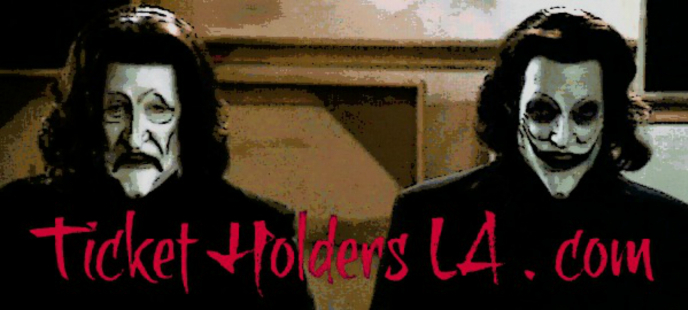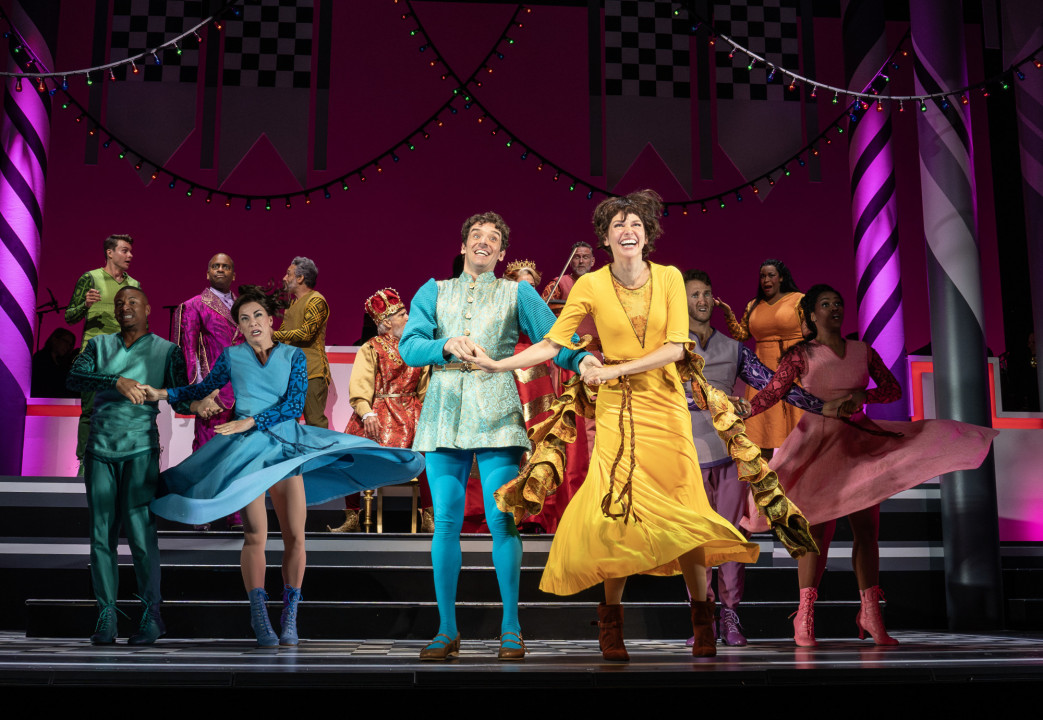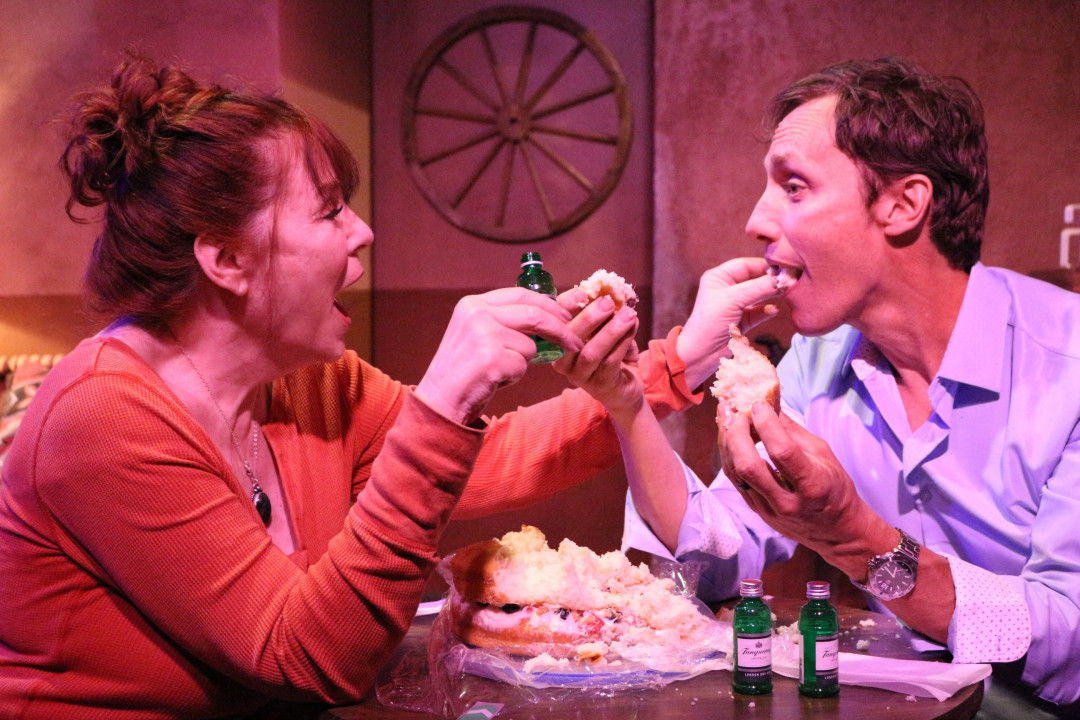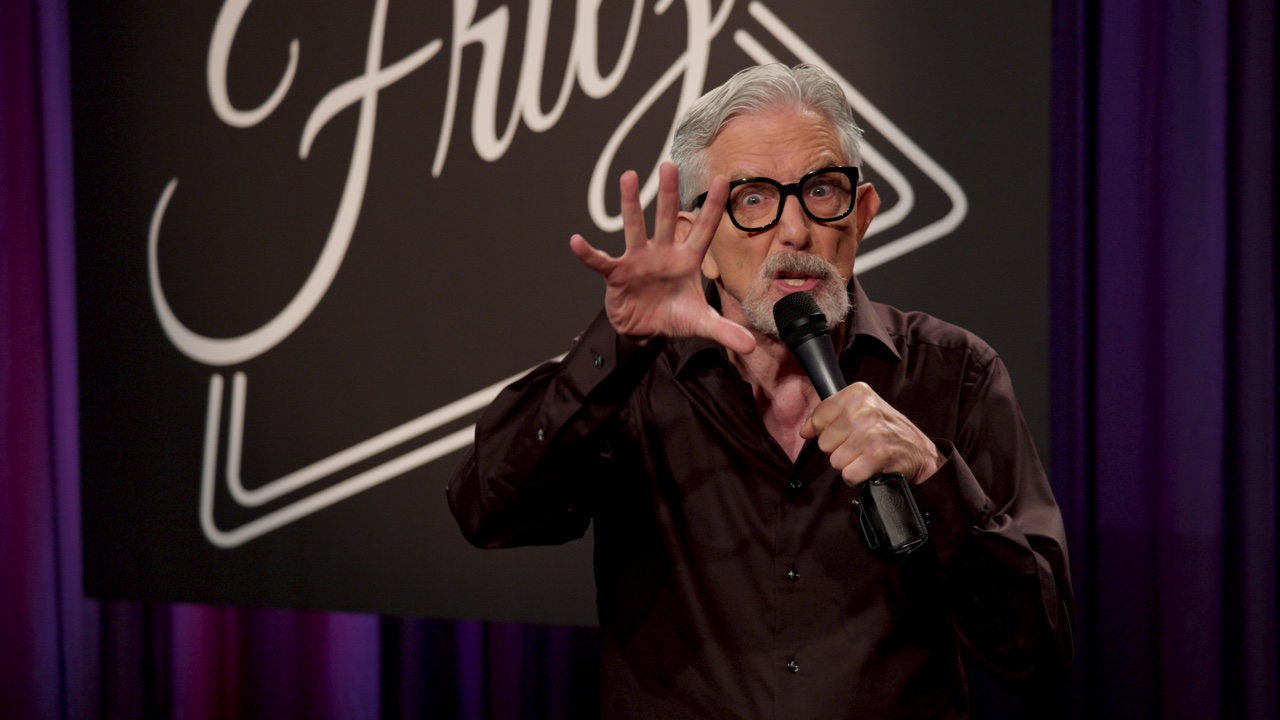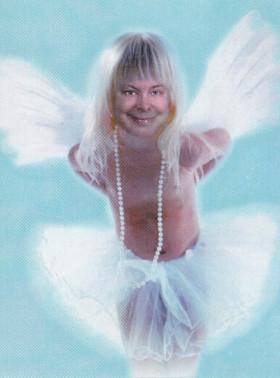- HOME
- TICKETHOLDER AWARDS 2024 - Part One
- TICKETHOLDER AWARDS 2024 - Part Two
- CURRENT REVIEWS
- CRISSMISS LETTER 2024
- "WAITING FOR WALK"
- FEATURES & INTERVIEWS
- MUSIC & OUT OF TOWN REVIEWS
- RANTS & RAVINGS
- MEMORIES OF GENIUS
- H.A. EAGLEHART: HIEW'S VIEWS
- TRAVIS ART FOR SALE - Collection 1
- TRAVIS ART FOR SALE - Collection 2
- TRAVIS ART FOR SALE - Collection 3
- TRAVIS ART FOR SALE - Collection 4
- TRAVIS ART FOR SALE - Collection 5
- TRAVIS ART FOR SALE - Collection 6
- TRAVIS ART FOR SALE - Saints & Sinners
- TRAVIS ART FOR SALE - Pet Portraits on Commission
- COMPOSER SONATA: Hershey Felder Portraits
- TRAVIS' ANCIENT & NFS ART
- TRAVIS' PHOTOGRAPHY
- PHOTOS: FINDING MY MUSE
- REVIEW ARCHIVES: SUMMER - WINTER 2024
- REVIEW ARCHIVES: FALL 2023 - SPRING 2024
- REVIEW ARCHIVES: SPRING - SUMMER 2023
- REVIEW ARCHIVES: FALL 2022 - WINTER 2023
- A LIFE IN PHOTOS [1946 - 1996]
- A LIFE IN PHOTOS [1997 - 2015]
- A LIFE IN PHOTOS [2016 - 2018]
- A LIFE IN PHOTOS [2019 - 2021]
- A LIFE IN PHOTOS [2022 - 2023]
- A LIFE IN PHOTOS [2024 to...?]
- LA DRAMA CRITICS CIRCLE AWARDS 2023
- TRAVIS' ACTING SITE & DEMO REELS: travismichaelholder.com
- CONTACT THLA

EVERYBODY'S GOT ONE
CURRENT REVIEWS
by TRAVIS MICHAEL HOLDER
"Critics watch a battle from a high place then come down to shoot the survivors." ~ Ernest Hemingway
Once Upon a Mattress
Photo by Joan Marcus
Ahmanson Theatre
The beginnings of the 65-year-old musical Once Upon a Mattress were modest indeed. First developed in a much shorter version as part of a workshop at the now-defunct Tamiment Playhouse's adult summer camp in the Poconos, it opened first off-Broadway in 1959 before transferring to Broadway later that same year.
To say that Jay Thompson, Marshall Barer, Dean Fuller, and composer Mary Rogers humorous adaptation of Hans Christian Andersen’s 1835 fairy tale The Princess and the Pea is a minor effort has always been a given; what made it a huge success back then was the meteoric emergence of its star in her first leading role: one previously unknown Miss Carol Burnett.
It’s impossible to imagine Mattress without someone cast as Princess Winnifred any less dynamic than Burnett, who throughout her nearly seven-decade career has always been a tough—no impossible—act to follow. Indeed in its original production, when she left the show and was replaced by The Brady Bunch’s acerbic housekeeper Ann B. Davis, the production closed after a mere eight performances.
Even in its first national tour featuring Dody Goodman and later Imogene Coca in the role, Mattress never got the same response without Burnett and proved to be a difficult sell despite the iconic Buster Keaton along for the ride as the mute King Sextimus the Silent.
I would suspect when the current incarnation of the musical began as a concert staging for New York City Center’s Encore! series with a new adaptation written by The Marvelous Mrs. Maisel’s multiple Emmy-winning Amy Sherman-Palladino, there wasn’t prior thought about it moving to Broadway, let alone embark on a national tour.
What primarily made it a reality was finding an actor capable of all but channeling Burnett—and that would be double-Tony-winning Broadway superstar Sutton Foster appearing as Fred. Her performance in the musical’s pivotal role, half-Burnett and half-Judy Canova, is almost singlehandedly what this revival is all about; if she hadn’t agreed to travel with the production here to the Ahmanson, I doubt if it would have been booked.
What’s the old adage about making a silk purse? In a show long relegated to being presented in high schools and community theatres, this Mattress is mighty comfy and about as slickly silken as it could be. Under the delightfully tongue-in-cheek direction of Encore's Tony-nominated Lear deBessonet and featuring some truly inspired performances in the musical’s principal roles, it somehow manages to overcome all the reasons it hasn’t received a large scale new production in over six decades.
Foster is a true triple-threat as a singer, dancer, and most of all a brilliant physical comedian. All long gawky legs, akimbo elbows, goofy expressions, and acing a majorly disheveled appearance, she gets away with things no one else could—except of course Carol Burnett herself. As another character quips, she appears to have so many teeth “it’s like you ate a piano,” something that could be (and has been) said about the original Princess Fred as well.
One purposely long and extended scene in which Foster devours an entire bowl of grapes without swallowing could also easily rival her predecessor playing Eunice Higgins or Alice Portnoy, something of which audience members seated in the first two rows and not gifted with Blue Man plastic ponchos could certainly attest.
In an inspired bit of casting, Foster is perfectly complimented by one of the Broadway stage’s other most gifted performers, Michael Urie, playing the lovably hapless Prince Dauntless. As a team who clearly enjoys working with one another, the pair makes this all fresh and winning.
Urie is especially endearing as he tries to navigate set designer David Zinn’s many onstage staircases with utmost slapstick aplomb and in a hilarious one-person “duet” with the show’s other best asset, David Patrick Kelly, who delivers a showstopping turn as Dauntless' aphonic father the King.
Ana Gasteyer is also a standout as a Margaret Dumont-esque Queen Aggravain, as is Kevin Del Aguila as the court’s resident Wizard and Daniel Breaker as the Jester who narrates the story.
What makes this work best and get the better of a dated old warehouse that was never too good in the first place is the decision to embrace its obsolescence rather than improve it. Zinn’s intentionally flat and flimsy-looking set, Andrea Hood’s primary-colored costuming, Justin Townsend’s lighting so bright it hurts, and featuring musical director Annbritt duChateau and her sprightly orchestra visible upstage behind the action, are all aspects quickly reminiscent of one of those cheesy old-fashioned TV variety specials that aired in early 1960s starring someone like Andy Williams or Dean Martin. Unlike most modern musicals relying on hydraulics and video projections rather than movable set pieces, Camelot-style royal banners are flown in from above, furniture is carried on and off by ensemble members, and a black vaudeville-style wall lowers when things need to change behind it.
Despite Sherman-Palladino’s identifiably contemporary touches, the book is basically just as old-style and Rogers’ score is just as forgettable as ever, but there are lots of tongue-in-cheek innuendos to catch, including calling out things mentioned that haven’t yet been invented, as well as topical references surely added wherever the tour lands—in this case asides about traffic on the 405 and a telling reference to one of the male dancer’s sexuality by mentioning he lives in Silverlake.
The company of comic veterans also allowed themselves a few nanoseconds of breaking up SNL-style on opening night, as when another ensemble member obviously had a hard time staying in character when Foster silenced him by raising a leg and sticking her foot over his mouth. Whether such moments are spontaneous or scripted I can’t say, but they definitely add to the fun in a production that refuses to take itself too seriously.
There are lotsa reasons to see Once Upon a Mattress while it’s stopped here. If nothing else, it’s a golden opportunity to experience the magical talent of folks such as Sutton Foster, Michael Urie, and David Patrick Kelly, worldclass performers who are becoming—no, already are—theatrical legends in their own time.
THROUGH JAN. 5: Ahmanson Theatre, 135 N. Grand Av., LA. 213.628.2772 or CenterTheatreGroup.org
The Civil Twilight
Photo by Lizzy Kimball
Broadwater Studio Theatre
I confess I spend a lot of time when at home enjoying the grisliest of grisly bad horror movies—and as a critic, let me also admit the conundrum here is that the cornier they are the better—but never has a stage nail-biter managed to freak me out.
Although it’s not a traditional thriller, the world premiere of PEN USA and LADCC Award-winner Shem Bitterman’s inherently spooky and even sinister new play The Civil Twilight truly put me on the edge of my seat.
Part of that reaction is the proximity of the action. Entering the Broadwater’s ultra-intimate Studio Theatre, a “room” about big enough to host a small actors’ workshop, the size of the claustrophobic space immediately gives the sense of walking directly into a rundown motel room in a desolate mid-American locale. It’s the kind of place where one first checks the mattress for crawly things and the bathtub for bloodstains—something that actually happened to me once on tour with a play in the boonies—before tentatively unpacking.
There’s a raging storm outside, a weather event nasty enough to send two stranded traveling strangers (Taylor Gilbert and Andrew Elvis Miller) into sharing a cab from the shutdown local airport to this bleak southwestern-themed motel decorated in early Walmart, an annoying development made worse by the fact that the place only has one last room available they’ve reluctantly decided to share.
Ann is a kind of dumpy, salt-of-the-earth suburban wife, while John is a rather put-together businessman-type who keeps things close to the vest and may or may not be someone to trust.
At least he’s good for finding ways to turn on the lights and sleuth out why the room smells as though something died in it—which it has. Soon he is using one of the room’s only two towels to remove a dead ferret or some other now unrecognizable small putrid animal from under the bathroom sink.
The pair soon finds they have a lot more in common than they initially realized, as John is a regionally famous radio personality and Ann, as it turns out, is his professed biggest fan, someone who knows the names of his wife and kids and, figuratively speaking, where all the bodies are buried.
Or does she.
A kind of creepiness soon begins to descend over this purgatory-like motel room like an ominous shroud. Bitterman’s quirky play is full of twists and turns that give the sense that it could have been an old classic Twilight Zone written by Sam Shepard. In fact, when this play closes, someone should grab up the space as is for a revival of Fool for Love.
There are many twists and turns in this tense 80-minute ride and, although some are a tad far-fetched, it feels eerily personal as the audience sits in such close proximity to the performers that, if one sneezed, the other might be inclined to say “Bless you.” After the performance, when introduced to my partner Hugh, Miller actually said it was as though they’d already met since it felt as though he had shared an airplane-sized bottle of Tanqueray with him at the onstage table placed inches from where we were seated.
Under the sturdy directorial hand of Ann Hearn Tobolowsky, the crisscrossing shocks and snaking revelations that crash through the play are sharply realized. Still, there's a far deeper and intentionally camouflaged message here: a kind of lament for the rapid decline of rural midwestern values that leaves the door open for what Bitterman calls “hucksters and charlatans [who] for a few bucks or some cheap outrage offer a path to desperately needed change”—you know, like the current conman pulling the wool over the eyes of half of our countrymen that may just result in him being in a position to soon destroy our society even more than he already has.
I believe this play is one of the year’s most unique and hauntingly memorable, especially considering a great writer’s good fortune to have developed it in collaboration with a director as accomplished as Tobolowsky and two veteran actors as consistently efficacious and arresting as Gilbert and Miller.
As John, Miller’s calm demeanor that hides a frightened and miserable trapped animal ready to spring is a remarkable accomplishment, only slightly overshadowed by the jarring intensity of Gilbert, who with this performance caps a long career of consistent excellence. Her work here, finding both a strength and vulnerability in the multi-faceted role of Ann, is the performance of a year in a year full of great performances in Los Angeles, a miraculous thing since it was born and cultivated in this unobtrusive and nondescript playing space.
Druthers? Only a few. Joel Daavid’s set is impressive but not dirty and grubby enough for how the room is described, while both actors sometimes come off less troubled by the icky conditions in which they find themselves than they should be, especially after first finding a decomposing critter as an unwelcome roommate.
When Miller takes off his wet jacket, he seems to know where the hook to hang it is located without a quick look around an unfamiliar space and when Gilbert turns down her bed, she appears far too confident that it doesn’t need a little exploration to prove it isn’t somewhere where one would be less inclined to wiggle their toes.
Without a doubt, however, Shem Bitterman’s The Civil Twilight is a totally unexpected eleventh-hour diamond in the rough that tops off our dynamic 2024 season with a bare-boned yet gleaming gem of extraordinary theatrical brilliance. I wanted to go home to take a shower and, in this case, that was a good thing.
THROUGH JAN. 26: Broadwater Studio Theatre, 1076 Lillian Way, Hollywood. http://theciviltwilight.ludus.com
Unassisted Residency
El Portal Theatre
Longtime Los Angeles weatherman Fritz Coleman retired in 2020 after four decades delivering his signature uncannily cheery forecasts on a daily basis but at age 76, his solo show Unassisted Residency, which plays once monthly at the El Portal’s intimate Monroe Forum, proves he’s still got the chops to deliver a jocular and lighthearted tsunami to his eager and most loyal fans.
Coleman began his career coming to LA to pursue his passion for standup comedy in the early 80s after first achieving success as a well-loved deejay radio personality in Buffalo, New York.
As the story goes, a producer at NBC caught his act one night at a local club and began to woo him to become a weatherman at KNBC-TV since our weather here was so consistent that he felt it needed a little on-air boost of humor to make it more interesting.
Delivering the daily forecast with a twinkle in his eye beginning in 1984 didn’t stop Coleman from continuing to chase his original dream by performing on local stages in several successful live shows, including his hilarious award-winning turn in The Reception: It’s Me, Dad! which played around town for several years to sold out houses.
Now, after leaving NBC four years ago, Coleman is back but the demographics have changed—or I might politely say… matured.
In my own case, as someone a year older than Coleman, his focus on finding the humor in aging is most welcome. In Unassisted Residency, the comedian talks about the challenges life has to offer in these, our so-called golden years, from physical deterioration to losing contemporaries on a regular basis to navigating the brave new world of technology and social media.
As his opening warmup act, the very funny and professionally self-deprecating Wendy Liebman notes, while looking out at the sea of gray hair and Hawaiian camp shirts in their audience, that Coleman chose to present his show as Sunday matinees so his target audience can shuffle our drooping derrières on home before dark.
Along the way, he also tackles subjects such as retirement communities, nonstop doctors’ appointments, incontinence, and Viagra, not to mention having grown up sucking in our parents’ omnipresent clouds of secondhand tobacco smoke and that generation’s lackadaisical attitude toward our safety and our health, all before moving on discuss to his all-new admiration for those heroic modern educators who during the pandemic had the patience to deal with zoom-teaching his grandkids.
The one thing he doesn’t talk much about is the weather—that is beyond mentioning how grateful he is that our current heat wave didn’t deter those gathered from venturing out of our caves and offering as a throwaway that one of the reasons he retired four years ago was climate change. Although he never says it, he doesn’t really have to; we get that even for someone as funny as Coleman, everyone has their limits when it comes to the potentially catastrophic future for our poor misused and abused planet.
Then when he launches into reminiscing about the amazingly incessant search for sexual gratification in our younger years (that time Stephen King once wrote when the males of the species all look at life through a spermy haze) and how that has changed since then. As a now single guy still looking for love—with some choice remarks about online dating sites—he tells a rather steamy tale about one date that proves it ain’t over ‘til it’s over, something of which I can definitely relate.
I first met Coleman in 1988 or 1989 when I did a feature interview with him as a cover story for The Tolucan (the more industry-oriented and less Evening Women’s Club-ish-pandering predecessor of the Tolucan Times).
He was gracious and charming and kept me laughing so hard back then that I couldn’t take notes fast enough, a knack he not only hasn’t lost but has sharpened considerably over the past 40 years. I couldn’t help wondering how many of the audience members at the Forum have been following him since then and for whom the topic of not-so gently aging hits home as dead-center as it did me.
This doesn’t mean you have to be 70-something to appreciate Fritz Coleman’s hilarious gift for creating homespun storytelling in his ever-extending monthly outing called Unassisted Residency.
My partner Hugh, who is a mere 42 years my junior and was quite literally at least three decades younger than anyone else in the audience last Sunday, laughed longer and louder than anyone else in the audience—perhaps a reaction to hearing me bitch continuously about getting old for the last 12 years?
PLAYS one Sunday each month at the El Portal Theatre’s Monroe Forum Theatre, 5269 Lankershim Blvd., NoHo. For schedule: www.elportaltheatre.com/fritzcoleman.html
